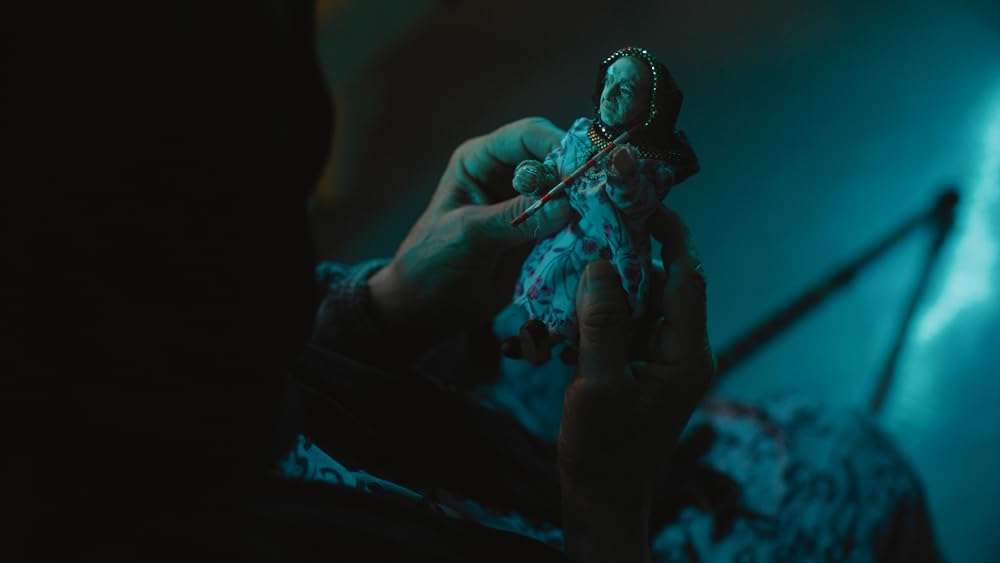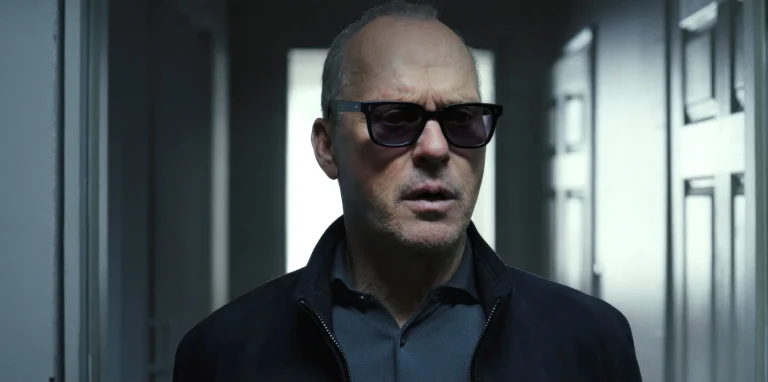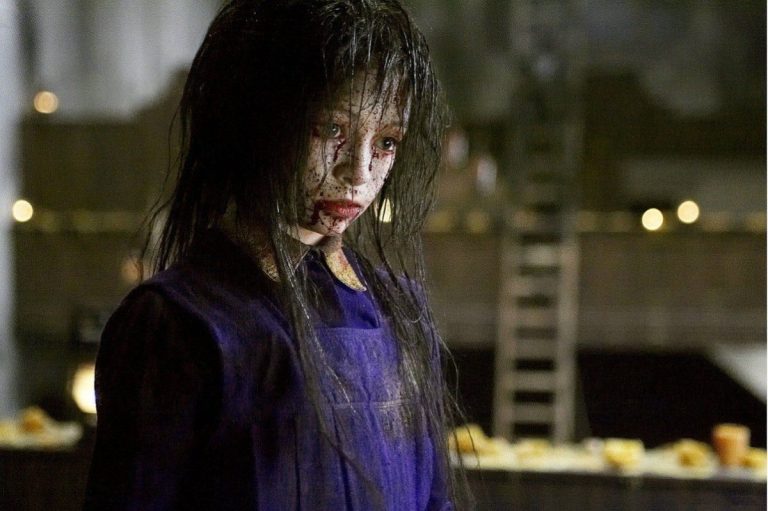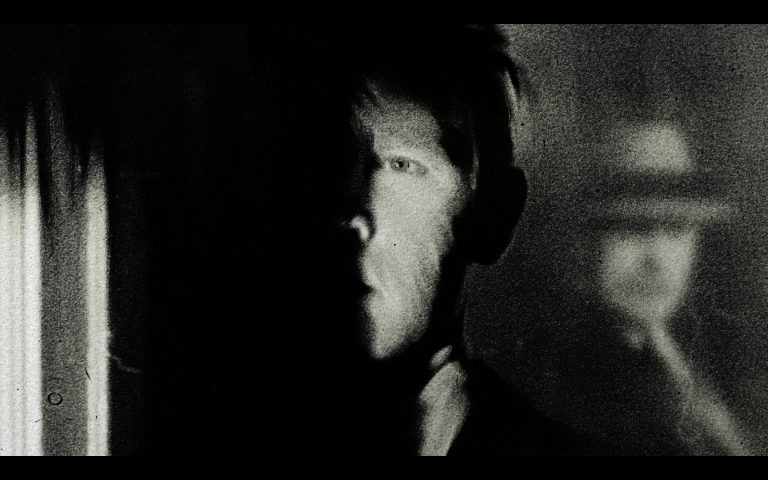“Why don’t you allow photos, Grandma?”
Director Asmae El Moudir’s film “The Mother of All Lies” (2023) begins with this seemingly innocent question that Moudir asks her grandmother to uncover the reason why there aren’t any photographs of Moudir from her childhood, In an exemplary feat of autofiction that took eight years to come to fruition, Moudir turns the camera to herself and her extended family as the film’s main subjects, revisiting and recreating painful moments from past experiences with utmost sensitivity, that her family members would rather forget.
The Mother of All Lies” is a film about memory and how it lingers in the subconscious, the ghosts of which continue to haunt us, even when we think we’ve slayed them. The film is at once an act of discovery, as well as an ode to remembrance; discovering that the past can never truly be suppressed or escaped and accepting that the act of remembering – though painful – can bring about collective healing and offer a chance to reimagine the past through a kinder lens.
When employing this throughline of memory and remembrance, “The Mother of All Lies” can be read as a companion film to Pegah Ahangarani’s hauntingly evocative documentary short, “I Am Trying to Remember” (Melbourne International Film Festival, 2021). Both films use photographs, rather the lack of them, as starting points to probe personal family history and how it intersects with troubling historical events – for Ahangarani, her family photo album becomes a catalyst to revisit scars that remain from the Iranian revolution, and for Moudir, the absence of photographs from her younger days is a constant reminder of the wounds that the Casablanca Bread Riots of 1981 inflicted on the psyche of her family. More importantly, both films are a testament to the act of remembering: reclaiming and reframing the past in a way that can allow for an opportunity to conquer our demons.
As Fern, the protagonist of Chloé Zhao’s Academy-Award-winning film Nomadland (2020), said, “Just like my dad used to say: ‘What’s remembered, lives.’ I maybe spent too much of my life just remembering…” For both Moudir and Ahangarani, this act of remembrance is more than just about healing from the past, it’s about reclaiming their existence. Their respective families must remember, however painful the process might be, for suppressing those memories also simultaneously erases Moudir and Ahangarani’s childhoods. Without reckoning with the past, there can be no acknowledgment of the present. The need to make these films, then, becomes an act of survival for these filmmakers.

The road of discovery for Moudir isn’t a straightforward one. As the film uncovers, her family isn’t exactly forthcoming when it comes to sharing details about their history. Her grandmother is the archetypical unreliable narrator, changing details whenever she feels cornered or has an inkling that her lies are unraveling. Structurally, you feel as if you’re in the middle of a whodunnit – Moudir’s extended family members and other relatives are all ‘suspects,’ playing their parts as unreliable narrators and inventing stories that can conform to their versions of the truth.
The ongoing conceit is elaborate, and you don’t quite know where facts end and fiction begins. Slowly, you begin to realise that it is only through these stories that Moudir’s family and relatives have been telling each other for years, can they begin to articulate the darker horrors of the past. Fact and fiction are inexplicably enmeshed together, and it’s impossible to separate the two. In fact, the ‘truth’ is also just a story; an unspoken story that’s been lost and buried under the weight of thousands of other stories that Moudir’s family and relatives have voiced out loud over the years.
Moudir employs a unique method in navigating this labyrinth of fiction to piece together her truth. Knowing that it’s going to be difficult for her family and relatives to articulate some of the most traumatic moments of their past, she reconstructs her Moroccan neighborhood as a small-scale model from memory, complete with handmade, miniature clay-based figurines put together by her parents that stand-in for real people that she interacted with as a child. To add another layer to this continuous enmeshing of fact and fiction, throughout the film, Moudir, her family, and her relatives often speak through their miniature figurine counterparts. They recount their stories, memories, and fears of the past as inanimate objects that have come to life, adding a dream-like and surreal aspect to how you experience the film.
At first instance, this seems like an outlandish concept: employing miniature figurines as catalysts for emotional catharsis and utilizing a dollhouse as a major driving force to confront the deep wounds of surviving near-death experiences. On paper, this shouldn’t work. It feels too trivial a device – especially when you consider the baggage and emotional heft that each of these stories carries. And yet, it does work. I wasn’t prepared for the gut-wrenching and soul-destroying impact this film went on to have on me. Transcending the medium, Moudir’s film forces you to look at your own relationship with the past and the stories we tell ourselves to avoid opening some of the more unpleasant rooms within the deep recesses of our minds.
Whether it’s Ahangarani and the Iranian Revolution or Moudir and her extended family living through the Bread Riots, these kinds of stories are a stark reminder that the cost of large-scale conflict is one that always plays out on a personal level. The impact on people who survive can often be so deep-rooted that it’s invisible, and unhealed trauma can be passed down over generations in insidious ways. As I look at the world we currently inhabit, one which is dominated by a 24/7 news cycle of war and blood lust, I wonder what kind of stories and fiction we will tell ourselves well into the future to survive these times. Moudir’s film may be an ode to remembering and accepting the past, but given the world we live in, I can’t help but see it as a cautionary tale for the present and for our future generations.
“The Mother of All Lies” is the official submission of Morocco for Best International Feature Film at the 2024 Academy Awards. The film is currently playing at the Palm Springs International Film Festival and will also play at the 2024 Sundance Film Festival later this month.



![Rojo [2019] Review – A Bleak Tale of Blood and Hate](https://79468c92.delivery.rocketcdn.me/wp-content/uploads/2019/11/Rojo-2019-highonfilms-768x432.jpeg)

![Joyful Mystery [2021]: ‘IFFK’ Review – A Moving Romantic Comedy About the Culture of Quarrels](https://79468c92.delivery.rocketcdn.me/wp-content/uploads/2021/03/SanthoshathinteOnnamRahasyam_screenshot_1200x800-768x512.jpg)

